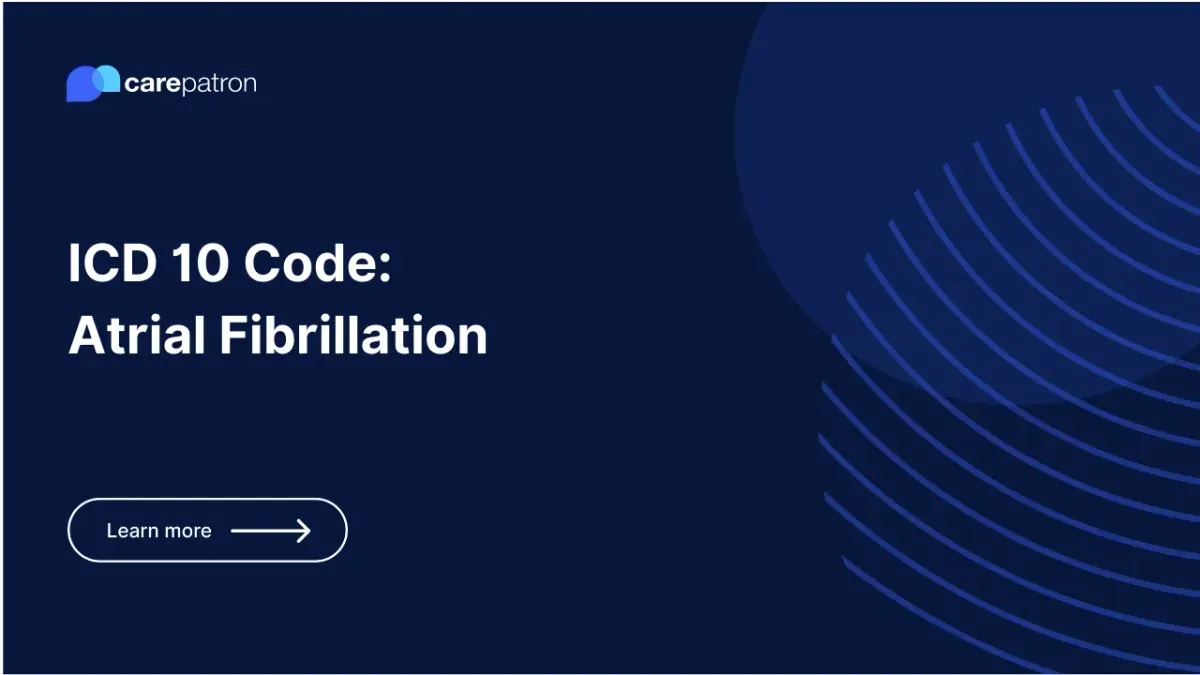
Atrial Fibrillation ICD-10-CM Codes
Learn about the crucial atrial fibrillation ICD codes, clinical descriptions, billability, synonyms, and get answers to FAQs in our guide.
Use Code
Commonly asked questions
Numerous factors, such as high blood pressure, heart attack, coronary artery disease, abnormal heart valves, or any form of heart disease, can cause atrial fibrillation.
While there's no guaranteed cure for AF, current treatments, including medication, medical procedures, and lifestyle changes, can help control symptoms and manage the condition effectively.
If not well-managed, atrial fibrillation can potentially lead to severe complications like stroke and heart failure. However, with appropriate treatment and lifestyle adjustments, individuals with AF can lead everyday, healthy lives.
EHR and practice management software
Get started for free
*No credit card required
Free
$0/usd
Unlimited clients
Telehealth
1GB of storage
Client portal text
Automated billing and online payments
